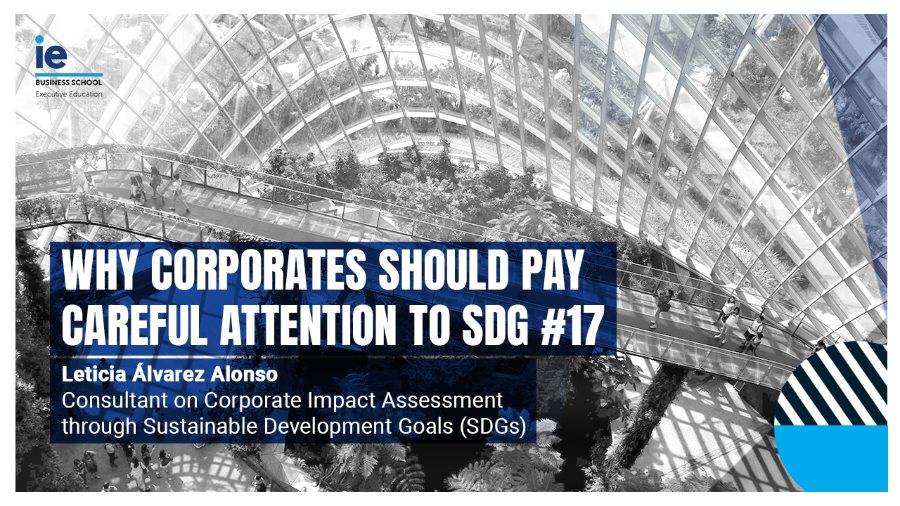COP30: What Business Needs to Know

By Leticia Álvarez Alonso – Academic Director of the Program Sustainability: Your Competitive Advantage.
On November 10, Brazil will host COP30, a summit that may redefine the framework of global sustainability and carry important implications for companies worldwide. Until now, the rules of corporate sustainability have been shaped primarily by a small number of governments and standard-setting institutions. The European Union has taken the lead with the CSRD directive and ESRS standards, while in the United States regulatory progress has been slower, limited mainly to the SEC’s carbon reporting requirements. In parallel, the IFRS has introduced its own sustainability methodology, which has already been adopted by multiple financial institutions and by several countries as the foundation for their reporting standards.
So far, these initiatives have applied mainly to companies operating in advanced economies. This is set to change with the introduction of the EU Carbon Border Adjustment Mechanism in 2026 (CBAM). Once implemented, any company in certain sectors exporting to Europe will need to demonstrate its contribution to decarbonization or pay a fee at the border linked to its emissions profile. For exporters in countries where decarbonization has been slower, this could lead to increased costs and reduced competitiveness. Some governments have begun to develop domestic decarbonization frameworks to mitigate this impact, but such measures will take time to deliver results.
 Brazil, as host of COP30, is expected to propose an alternative approach. As reported by the Financial Times[1], the country plans to advocate for a global carbon pricing system. The intention is to create a mechanism that encourages emissions reductions across all regions while giving developing economies greater flexibility. A portion of the revenues generated would be reinvested in decarbonization projects within those same economies, offering a potentially more balanced solution than the unilateral measures being advanced in Europe.
Brazil, as host of COP30, is expected to propose an alternative approach. As reported by the Financial Times[1], the country plans to advocate for a global carbon pricing system. The intention is to create a mechanism that encourages emissions reductions across all regions while giving developing economies greater flexibility. A portion of the revenues generated would be reinvested in decarbonization projects within those same economies, offering a potentially more balanced solution than the unilateral measures being advanced in Europe.
For companies, these developments are directly relevant to business planning and strategy. The rules set at COP30 may determine the conditions of market access, the cost structure of exports, and the competitive environment across industries. After all, many emissions associated with global supply chains fall under Scope 2 and 3, which are influenced by the country’s energy systems and transport infrastructure beyond the control of individual companies. European companies may also be affected, since the CBAM food production—potentially exposed to competition from producers outside the EU that are not subject to the same requirements.
COP30 will therefore be a critical moment for business regardless of where they are based. Companies that prepare by understanding the proposals on the table, engaging with their national representatives, and contributing to the discussion will be better positioned to safeguard their competitiveness. Those that remain passive risk being subject to frameworks shaped without their input.
The decisions taken in Brazil this November will help define the sustainability rules of the next decade. Business leaders would be well advised to follow the debate closely and ensure their perspectives are part of the conversation.
————-
[1] Financial Times: “Talk of a global carbon pricing scheme grows louder ahead of COP30”, September the 3rd



